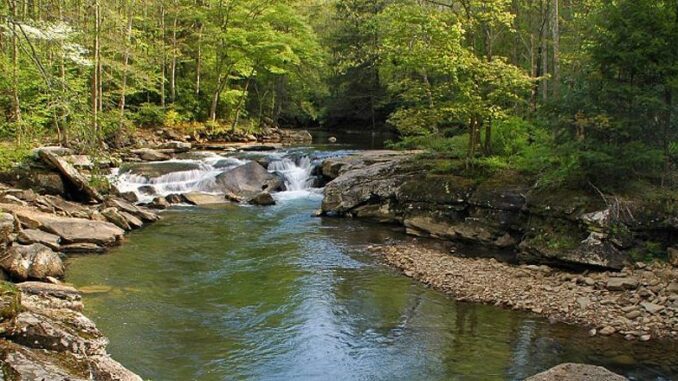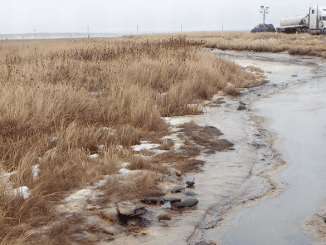
WHEELING, West Virginia, October 7, 2023 (ENS) – The U.S. Justice Department, working with the U.S. Environmental Protection Agency and the State of West Virginia, has reached a proposed consent decree with Waco Oil and Gas Co. Inc. to resolve alleged violations of the Clean Water Act and West Virginia state law for unauthorized discharges of dredged or fill material into waters of the United States in Braxton County, West Virginia.
Waco Oil and Gas of Glenville, West Virginia has agreed to pay a $825,000 penalty, restore the vast majority of the impacted waters and provide compensatory mitigation for waters that cannot be restored.
Additionally, the company will place a deed restriction on its property to protect the restored waters in perpetuity.
The filed complaint alleges that beginning in 2017, Waco Oil and Gas discharged dredged or fill material into tributaries of the stream known as Bear Run and its adjacent wetlands, as well as tributaries of Cunningham Fork, a river in Appalachian Mountains near Sutton, West Virginia without the required federal or state permits. The federal EPA and the West Virgina Department of Environmental Protection allege.
“Specifically,” the joint federal and state complaint states, “Defendant has discharged pollutants, including dredged and/or fill material, into waters of the United States and waters of the State at a 392-acre site located near the intersection of Route 19 and I-79 in Sutton, Braxton County, West Virginia.”
The headwaters of Bear Run, an ecologically important resource, originate within the site. Bear Run is a non-navigable, relatively permanent headwater tributary of Elk River, a traditional navigable water.
From the site, Bear Run flows 19.5 miles to Elk River.
Cunningham Fork is a relatively permanent tributary located northwest of the site that runs parallel to I-79. Included on maps by the US Geological Survey, Cunningham Fork is a headwater tributary of Buffalo Creek, which flows from the site 4.48 miles to Elk River.
Based on “aerial imagery” the state and federal agencies allege that Waco’s earthmoving and construction activity at the site caused unstable slopes that resulted in the slips/landslides that covered the streams and sent sediment-laden water down the waterways, resulting in impacts to aquatic resources.
“Clean water is vital for our communities and the environment,” said Assistant Attorney General Todd Kim of the Justice Department’s Environment and Natural Resources Division. “Today’s action demonstrates that the Justice Department, together with its state and federal partners, is fully committed to upholding the Clean Water Act and protecting this critical resource.”
“EPA remains committed to vigorous enforcement of wetlands protections,” said Assistant Administrator David Uhlmann of EPA’s Office of Enforcement and Compliance Assurance. “Today’s settlement makes clear that companies will not be allowed to profit from illegally filling wetlands and imperiling the health of the nation’s rivers and streams.”
“EPA is serious about enforcing regulations to protect the shared resources upon which we all rely.” said Mid-Atlantic Regional Administrator Adam Ortiz for EPA. “Outcomes like this remind land developers across West Virginia that the health of their business and the health of the environment are totally connected.”
The consent decree is available at: www.justice.gov/enrd/consent-decrees. The public comment period is open until the end of the business day on November 3, 2023. The Federal Register notice includes instructions for submitting public comments.
Featured image: A tributary of the Elk River in West Virginia runs clear it is in its natural state without the Waco Oil and Gas discharges into its tributaries. undated. (Photo by Rick Burgess courtesy West Virginia Explorer)
© 2023, Environment News Service. All rights reserved. Content may be quoted only with proper attribution and a direct link to the original article. Full reproduction is prohibited.



